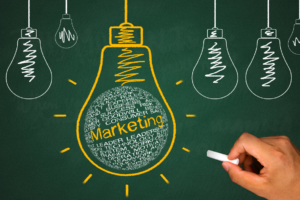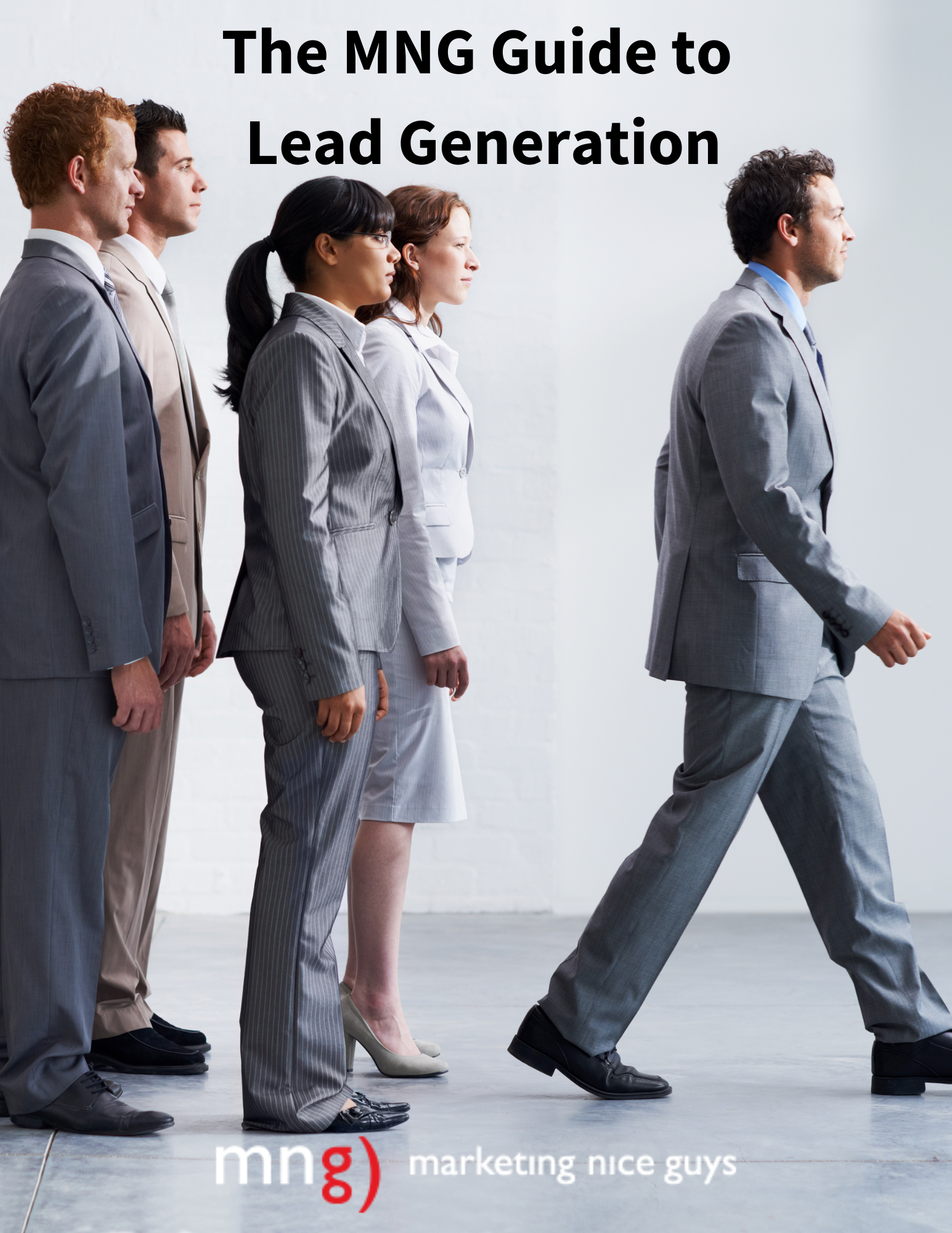When it comes to growing your small business, one of the most important decisions you have to make is whether you do marketing yourself or hire someone. Then, if you do decide to hire someone, will it be staff or a marketing agency? If you do go the latter route and you choose a marketing agency, the question then becomes, what do you look for? Which one is the best fit for your business? In the following, we’ll provide some guidance on how to go about the process. First, we recommend taking a look at more standard qualifications. Then, we suggest you give some thought and ask some questions about some intangibles that may make the difference between securing a good agency solution for your business and one that may not perform as well. Let’s start with the standard criteria.
Core Qualities of a Good Marketing Agency for Small Businesses
Here are the must-haves that you probably want to consider ahead of making any choice.
Experience: The first thing you’ll want to consider is the agency’s experience in working with small businesses like yours – especially if that agency has a proven track record of successfully promoting brands in your industry or related industries. If it doesn’t have direct experience in your industry, does the agency have the capacity or the knowledge base it can apply to what your needs are? The latter is a bit of a harder question but one way you can get at this is to ask questions when you meet with prospective companies such as: “Tell me how you’ve approached a solution in the past for a client, and how it came out?” or “Tell me who you would hypothetically handle a situation such as this….?”
Services: Some agencies specialize in only one thing or a few things. If you need help with email and marketing automation, for example, we wouldn’t go to an agency that specializes in, say, social media. In general, we always suggest using an agency that offers a wide range of services that will meet your marketing needs, such as social media management, ad management, website design and development, search engine optimization, content creation, and email marketing. The reason is that all your marketing in all your channels has to fit together/work together. Hiring piecemeal for different channels likely won’t get it done and you may find that your marketing comes out disjointed. One thing here: Make sure to ask how the agency addresses multichannel or cross-channel marketing. And even if they only work in one area for you, a good agency will “care” and make recommendations that could help you in other areas too.
Communication: You should look for an agency that is easy to communicate with and responsive to your needs. Did they respond quickly to your proposal or did they get back to you when they said they would? Were they transparent in terms of what they said they would cover and do? Finally, on the proposal side, did the agency listen to what you needed and respond with something customized to your needs? By the time it gets to the contract implementation stages, it’s often too late to repair a relationship that is riddled with communication problems. We’ve seen too often where an agency does one thing but the client really wants something else. Agencies that don’t communicate well don’t make good partners.
Results-Driven: A good agency will be results-driven, meaning they focus on hitting the goals that matter to you. Make sure they can provide you with measurable results and are willing to discuss their performance and your return on investment. One thing: any marketing agency should always be clear and upfront (honest) about what realistic goals are – as often many marketing tactics aren’t meant to drive immediate-term conversion. In fact, we’d very wary of companies that just promise immediate-term leads or conversions, or that suddenly, after employing them, you’ll be seeing some avalanche of customers. That doesn’t mean you can’t expect your agency to deliver you new customers or more business. You can. But what it does mean is that you should go in clear-eyed about what can and can’t be done given your product/services and industry, and hire a partner who understands this as well. We’ve seen many businesses that have been scarred by experiences with agencies who promised the moon to win the contract, rather than what realistically could be expected.
Cost/Value and Long-Term Contracts: While cost should not be the only factor in your decision, it’s important to make sure you’re getting a fair price for the services you’re receiving. Look for an agency that is transparent about its costs and that offers a variety of pricing options to fit your budget. One thing to be wary of is a long-term contract. It’s fine if you’ve been working with an agency for a while and you trust the work they do and the value they bring every day. But locking yourself into a long-range contract upfront can have huge risks if the agency doesn’t perform. Why not try a 3-to-6-month contract instead? Or have the agency develop a strategy or a short-term project. In that period, you can see if there’s value to you. Chances are if they do a good job on the initial project/period, they’ll also be a good long-term partner.
Case studies/Content: Finally, ask for case studies or references. Look for an agency that has a proven track record of delivering positive results for their clients and has documented it. The other thing to look for: Does the agency develop its own content? After all, how well does the agency do marketing itself using a particular budget? What insights do they have from doing their own marketing? A lot of marketing agencies that cater to small businesses are small businesses in themselves. If they can’t market themselves, how will they market your small business? This is also a good place to see if agencies “practice what they preach.”
The Intangibles: What Else to Look for From a Marketing Agency
While traditional factors like experience and services are important to consider, there are also intangibles that you should look for when choosing a marketing agency. Here are a few key areas to evaluate:
Creativity: This isn’t just the ability to think “outside the box,” it’s also understanding what creativity is and what it isn’t. In other words, if you really understand the definition, creativity isn’t just something that’s completely new. Creativity has its roots in the shared understanding of what came before. So, those who can take a concept that’s known or understood, twist it slightly so that you can still see the original shared understanding, but still produce something new and fresh are truly the creative ones. Why does that matter? Because unless your agency gets those shared understandings that you have within your industry or your business, it may be hard for them to be truly creative on your behalf. One thing to look for here: is a broad range of knowledge or skills for those who work on your account. The more general the better because they can apply what they know from different areas to solve the problems you might be facing.
Curiosity: A good agency should be curious about your business and industry. They should be willing to ask questions and learn about your unique challenges in order to develop a marketing strategy and/or tactics that are tailored to your needs. Also, unless they’re curious about your business, they’ll never to be able to market and understand your customers the way they’ll need to in order to be successful.
Awareness: It should go without saying, but the agency should have a deep understanding of the latest trends, technologies and best practices in the marketing industry, and should be aware of the current competitive market that your business is currently in. They should be able to use that knowledge to help your business stay ahead of the curve, in the following ways:
-
- Knowledge of the technology or platforms to use to best market your business
- Knowledge of current technologies employed by competitors or others in the space
- Knowledge of the marketing tactics or techniques to maximize leads or conversions
- Knowledge of the unique nature of your audience and or methods to target them
Empathy: A good agency should be able to understand and relate to both you and your customers. For your customers, they should be able to put themselves in their shoes and develop a marketing strategy that speaks to their needs, challenges, and interests or create messaging that can resonate emotionally with them. For you, a good agency should be able to help you work through your challenges, make it easier for you to focus on the areas you want, and provide the peace of mind you need to be successful. A good way to gauge this: During your initial conversations, is the focus on them (how great they are) or on you (what you need to be successful and how they can help you)? If it’s the former, we’d run away fast.
Attention to Detail: In today’s digital world, a good agency has to be detail-oriented. The smallest mistakes or oversights can often hurt performance. That means paying attention to the color of a call-to-action button, writing a compelling subject line or copy for an ad, or taking the time to optimize an image on the page for SEO. Today, especially, with data being ubiquitous, your agency should be continuously looking at the little things to see where your marketing can be improved. In that fashion, they’ll ensure any elements of a marketing campaign are always executed with precision.
Conclusion
If you need more marketing help, don’t hesitate to reach out to us at Marketing Nice Guys. We’re happy to schedule a free, 30-minute consultation to discuss your challenges and how we might solve them.






